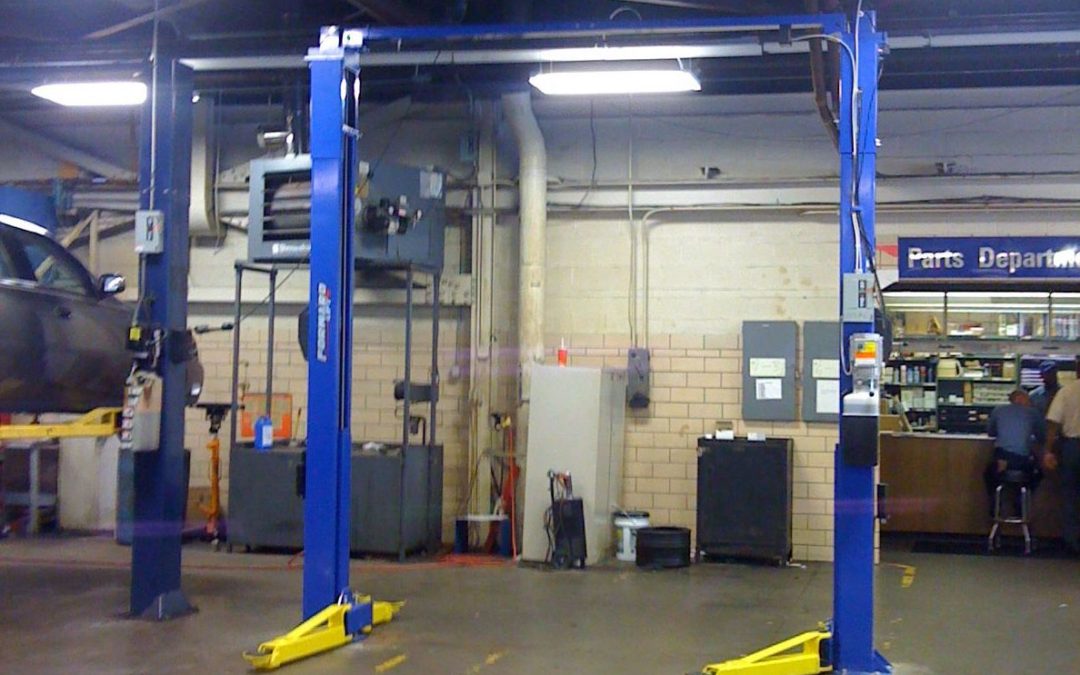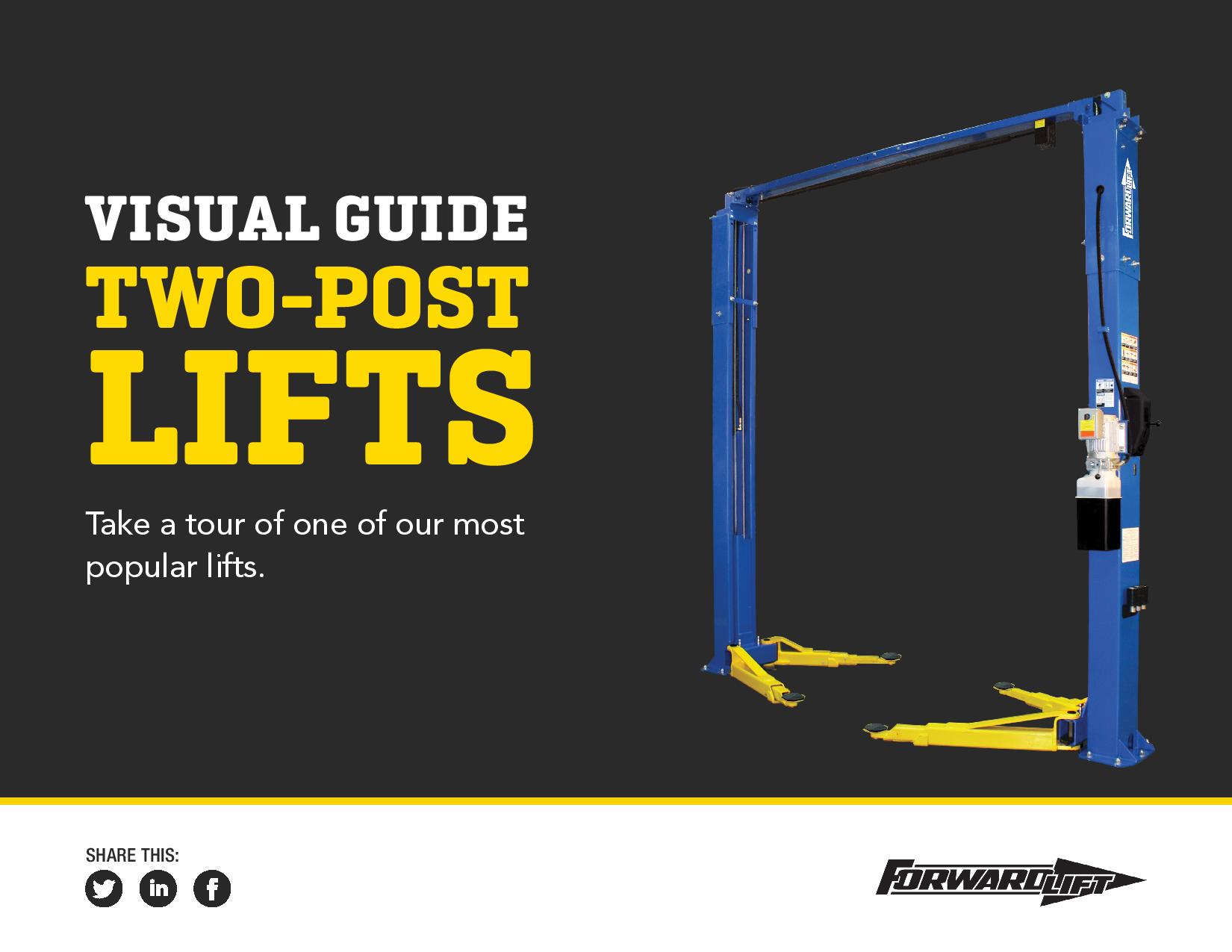What makes Forward Lifts great? They’re tough as hell, and we build them to need as little maintenance and repair as possible.
That said, a lift is a machine. Which means maintenance is mandatory.
Here’s how to stay on top of it:
- Wipe your cables with a rag to feel for any small broken strands that you may not be able to see. Did you come across broken wires, deformed strands, severe corrosion, excessive stretch, variations in diameter or any change in their normal appearance? Then shut it down and replace those cables immediately.
- Check the anchor bolts that keep it in the concrete foundation. Tighten them down to the manufacturer’s guidelines whenever they need it.
- Lubricate that lift. Seriously. Follow the manufacturer’s recommended maintenance schedule.
- If you have a hydraulic lift, you’re gonna need to check the fluid level and fluid quality. If it’s low or dirty, refill or replace.
- Solvents, corrosive agents and de-icing chemicals are the enemies. Rinse that crap off with water immediately and dry it with a clean rag.
- Take a look at your lift accessories or adapters on the regular. And don’t forget your rolling jacks.
- If a warning decal is peeling away from the lift, stick it back down or replace it.
- Get a lift inspector out to your shop once a year at a minimum.
Repairs are even more important than maintenance. But how do you know if you need to bring in the experts? Start by taking a look at your lifts every day. Yes, every day. Just take a quick glance. And if you see any of these five signs, call a qualified repair technician:
- Your lift is leaking hydraulic fluid.
- Locks or restraints don’t work.
- Excessive wear or flaws on any part of the lift.
- Contact points—including adapters—are damaged or worn.
- Concrete around the floor anchors is cracked or loose.
Finally, ask your Forward Lift dealer for a copy of the Automotive Lift Institute’s manual, Lifting It Right. It’s not an exciting read, but it’s got good info on safe lift operation. And while you’re talking to your dealer, have him recommend a qualified lift inspector for your annual inspections. They’re mandated by ANSI national standards, so don’t skip them. You don’t want anything happening to your techs or the cars they’re repairing.


